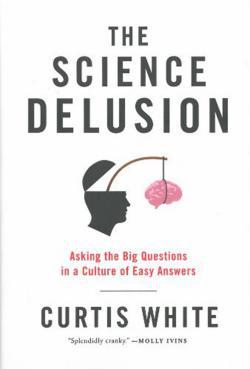I confess I have been surprised by several of the reviews of my new book, The Science Delusion. I have been described as an angry (ticked off, grouchy, mad-as-hell) critic of straw men and perpetrator of ad hominem attacks.
Putting aside the possibility that these characterizations are themselves ad hominem attacks, my larger fear is that after three decades of having the world explained to us by journalists or by experts trying to write like journalists, we have forgotten how to read a certain kind of text. As William Wordsworth said in a completely different context, “there hath passed away a glory from the earth.” The glory of satire. The glory of laughing at your enemy.
If Cicero published his “Second Philippic” against Marc Antony today, would we say, “He is an angry man. Not at all fair. He calls Antony a scoundrel and a brigand!”? (He did.) Would we know what to do with Jonathan Swift? Must all of our proposals now be written in the truly modest prose of the journalist?
It was particularly disappointing for me that Mark O’Connell, a student of literature, failed to recognize what I was up to in his Slate review “The Case Against Reason.” O’Connell accuses me of all three sins: angry, ad hominem attacks on straw men.
OK, I’ll bite. What’s a straw man? A straw man is the misrepresentation of an argument so that it is easier to attack. For example, when Richard Dawkins makes his case against religion by reducing the whole enterprise to evangelical Bible thumpers and the Taliban. The only example O’Connell provides from my book is from a brief satirical dialogue between me and a fictional member of an arts council. He leaves out the factual basis for this satire—a list, published by the organization Arts Watch, of the top 10 reasons to support the arts—that follows. The list is itself an example of self-satire; I merely help it to get the yuks it so richly deserves.

Courtesy of Melville House.
What’s an ad hominem attack? It is the lowest form of critique in which the human is attacked rather than the argument. For example, when Richard Dawkins calls Michel Foucault a “francophony.” The example of ad hominem argument that O’Connell provides from my book is simply a misreading. He says that I call Richard Feynman “Bongoman.” Actually, I did that. It is no doubt another of my attempts at polemical humor. But I don’t fault Feynman for playing the bongos. I’d happily join him on rhythm guitar, and we’d snap fingers with the hepcats. I merely suggest that it is disappointing that someone who played the bongos also thought that everything about creation is explained by the spinning of atoms. I’m laughing at the incongruity.
Now, I will admit that my book is not only satirical. As in more dignified forms of argument, I analyze the claims of my subjects (for example, the claim made by Daniel Dennett that we are “moist robots,” or Jonah Lehrer’s suggestion that creativity is a chemical event in the brain) and then try to offer reasons why we should not agree with those positions, why there are better ways to think about human beings. But once I’ve done that, if the mood is upon me, I invite my reader to laugh at these men of science. Yes, I mock some of these writers—Richard Dawkins, Christopher Hitchens, Lehrer, TED talkers of all stripes—because I think they deserve mocking. Their work, as I try to show, is dishonest, thoughtless in certain ways, and supportive of ideologies that I find oppressive.
If you are wondering what possible oppression I could be talking about in a book about science writers, I ask you to consider the past 30 years of colonization by science and technology of education, of work in the so-called creative economy, and even of our private lives. We live with our gadgets stuck to our heads. Meanwhile, of course, art and the humanities have been shunted off into the extracurricular regions of entertainment, the vapid worship of culture heroes like Beethoven (wonderful though he is, the angry old cuss), or the irrelevance of micro art scenes funded by state and federal agencies. If this does not seem to you to be oppressive, I would suggest that you have a very restricted notion of oppression.
But perhaps this too is another example of my anger. Am I speaking angrily now? I would prefer to say, with Blake, that I speak in “honest indignation,” which is the “voice of God.”
—
See all the pieces in this month’s Slate Book Review.
Sign up for the Slate Book Review monthly newsletter.